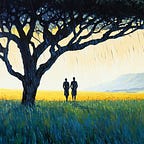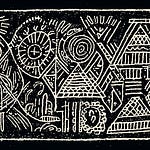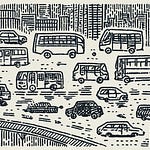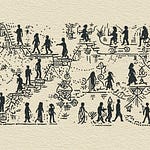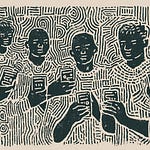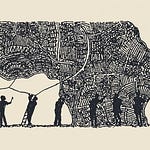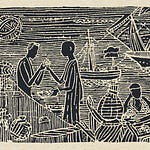There’s an Igbo saying, quoted by Chinua Achebe, that goes like this: ‘A man who does not know where the rain began to beat him cannot say where he dried his body.’ It reminds us that understanding the origins of our struggles is essential if we are to find our way out of them, that looking back is often the first step forward. It is a fitting way to end Season 1 of the Our Long Walk podcast, a season shaped by the question: what can Africa’s history teach us about its present, and its possible futures?
In this final episode, it is just the two of us – Jonathan Schoots and I – taking a moment to reflect on what we have learned. No guests, hardly any preparation, just an honest conversation between co-hosts, with some banter along the way.
We talk about long arcs and short turns. About the origins of states, of elite contestation, of trade, urbanisation and industrialisation. About the weight of colonial legacies and the promise of post-colonial reinvention. From 100,000 years of human prehistory to today’s aid policies and trade wars, our guests have shown us how deeply the past shapes the terrain on which African societies move.
Jonathan brings his historical sociologist’s lens to bear, asking how structures endure and ideas travel. I respond, as an economic historian, with a hopeful insistence: that progress is possible, if slow, complex and uneven.
Some episodes stood out for their clarity: Ewout Frankema’s predictions on an industrial Africa, James Robinson on culture, or Ken Opalo’s critique of aid. Others, like Bronwen Everill’s cautionary tales of borrowed blueprints, challenged the way we think about well-intentioned development. Jacob Dlamini’s probing reflections reminded us that the stories we tell about the past are never innocent. And throughout, a quiet thread of optimism: that understanding the past is the best way to build a better future.
ChatGPT even had a go at summarising it all. It offered four reasons why history matters for policy: to provide context, to avoid repeating mistakes, to resist imported models, and to chart long-term strategies. Not bad, we thought. But it missed something, perhaps: the role of surprise. Of being forced to think differently. That, more than anything, is what our guests gave us.
And now, we look ahead. The Our Long Walk podcast will be back in August with Season 2: new guests, new questions and the same stubborn curiosity. But we would love your help shaping it. Who should we interview? What themes should we explore? What fell flat this season that we could do better next time? Send your suggestions, ideas, or complaints to johan@ourlongwalk.com. And if you or your organisation would like to support the podcast financially, we are actively looking for partners to help grow the show. Please get in touch.
One final note: this podcast was born from a simple idea: that African economic history deserves a wider audience. It has grown thanks to your listening, your sharing, and your support. If you have enjoyed the journey, help us spread the word. And if you are new, there’s a season of episodes waiting for you: conversations with some of the most thoughtful scholars working on Africa today.
Thank you for walking with us in search of the rain.
‘Where did the rain begin to beat us?’ was first published on Our Long Walk. Thank you for listening.


